What are relevant pages?
Author - Constantin Nacul
Today we are talking about one of the key concepts of search engine promotion.
Content:
- Relevance looks different
- How search engines evaluate relevance
- Relevance assessment methods
- How to increase the relevance of a page / site
- Сonclusions
Relevance is the correspondence between what you were looking for and what you found.
When it comes to pages (sites), it means that the content matches the request. The more accurately the page responds to the request, reveals the desired topic, solves the user's task, the higher (ceteris paribus) it is. position in search results.
Relevance looks different
Let's say we want to buy iphone 11 pro max 256gb gold. Online electronics stores are at the top of the search results. By clicking on any of the links on the first page of the search, we will see the desired phone.

There are more ambiguous queries, and the search engine has to predict which of the results will be more useful to the user. The output for such requests does not look so uniform anymore. For example, for the query "accountant" Google mixes job search sites, Wikipedia and professional sites in the search results.

Another example of a mixed request:

There are some pretty unexpected search results. True, they will not be unexpected for everyone.


From year to year, search engines improve search algorithms and the likelihood that irrelevant results will be on the first pages of search results tends to zero.
How search engines evaluate relevance
On the Internet, a huge number of pages correspond to a particular request. Search engines create ranking algorithms to ensure that relevant results rank at the top of the search results.
It is the ranking that determines the quality of the search — the extent to which the search engine is able to show the user the desired and expected result. Ranking formulas are also built automatically - using machine learning - and are constantly being improved.
Relevant content alone will not be enough to rank high in SERPs. It is important that it solves the user's problem, helps to find ways out of the problem situation - to be useful. In this case, the search engine robot must access the page and understand the content.
Search engine algorithms evaluate hundreds of different factors, from the presence of keywords to site loading speed:
Since Google's algorithm is constantly improving, don't try to figure it out and change your site accordingly. Instead, create good original content that users will love and follow our guidelines in doing so.
SEO specialists assume that there are more than 200 such ranking factors, and their weight depends on the topic.
Relevance assessment methods
It is rather impossible to objectively assess the relevance of a particular page or site, rather than vice versa. Search results are becoming more personalized every day. They depend on the user's location, search history, the device from which this search is made, and many other factors. That is, the position of the site in the search results changes not only from day to day, but also from user to user.
It is advisable to check whether the page is relevant to a particular query and what place it occupies in the search results. This can be done manually or with special tools:
1. Manually.
To check if your site is ranking for a key query, you can use a search on Google, Yandex or another search engine. I recommend doing this in incognito mode so that your search history does not affect the results.
In my case, for the key query “buy nissan”, the OLX.ua website ranks fifth in the search.
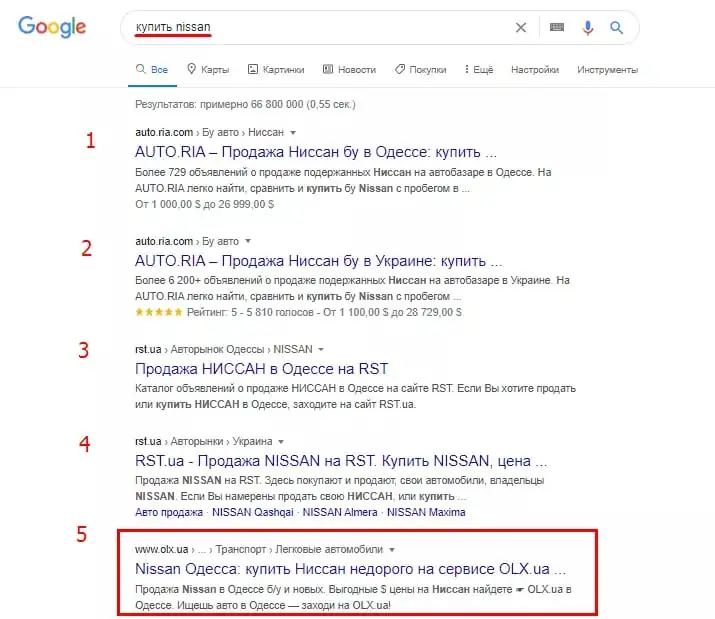
2. Manually using site:domen.com site operator.
You can use the site:domen.com search operator to determine the most relevant page on your site for a keyword.

That is, Google determines the first page in the search results as the most relevant to the key query “buy a car” on the OLX.ua website.
Search with the site:domen.com operator is also relevant for Yandex:

Without the search operator in the first position, a completely different page:

3. Netpeak Checker
To check a large number of keywords, you can use search results parsing from Netpeak Checker.
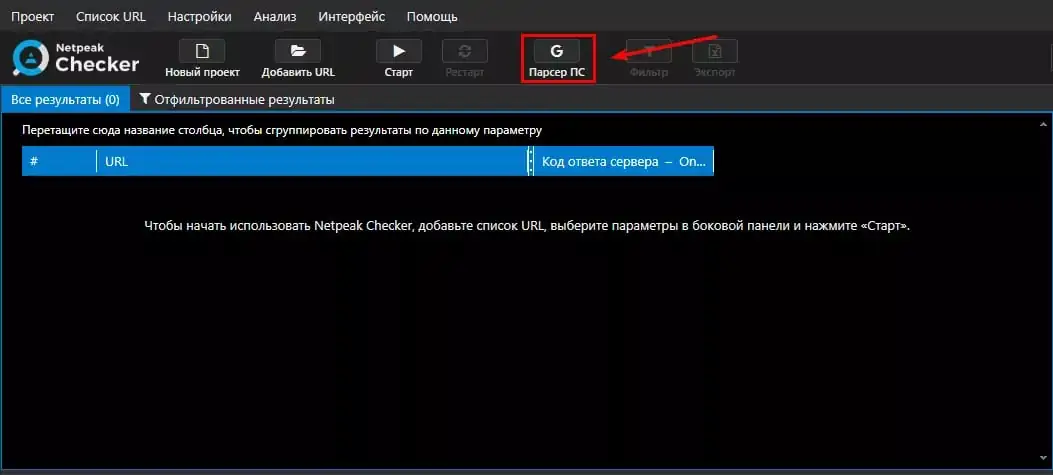
In the window on the left side, enter the keywords:
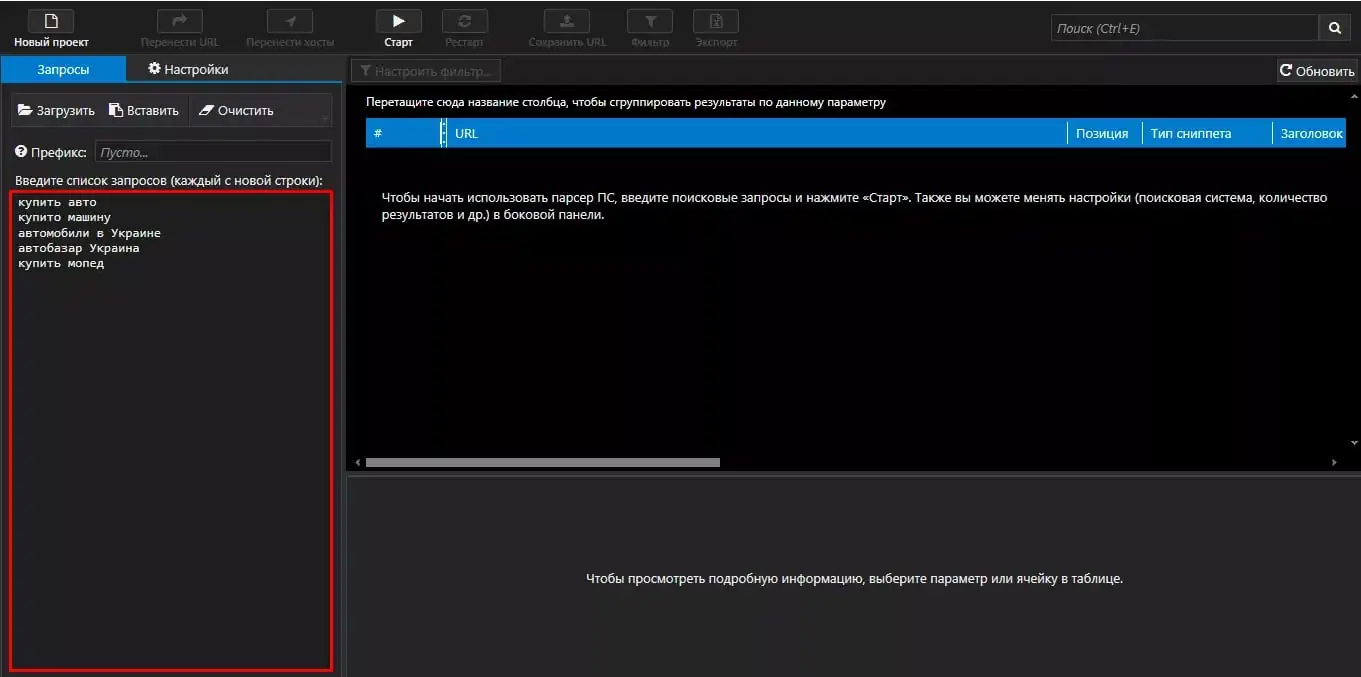
Go to the "Settings" tab:
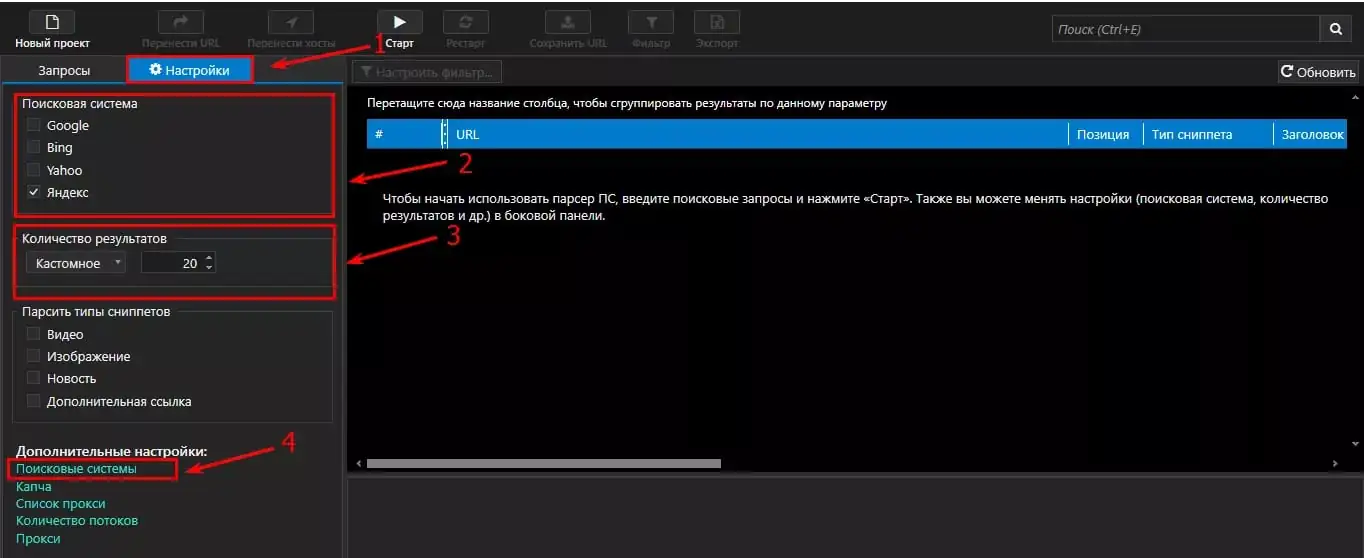
We select the issue of the search engine that we will parse, then we determine the required number of results. In the advanced settings, select the "Search engines" item. Select location and language.
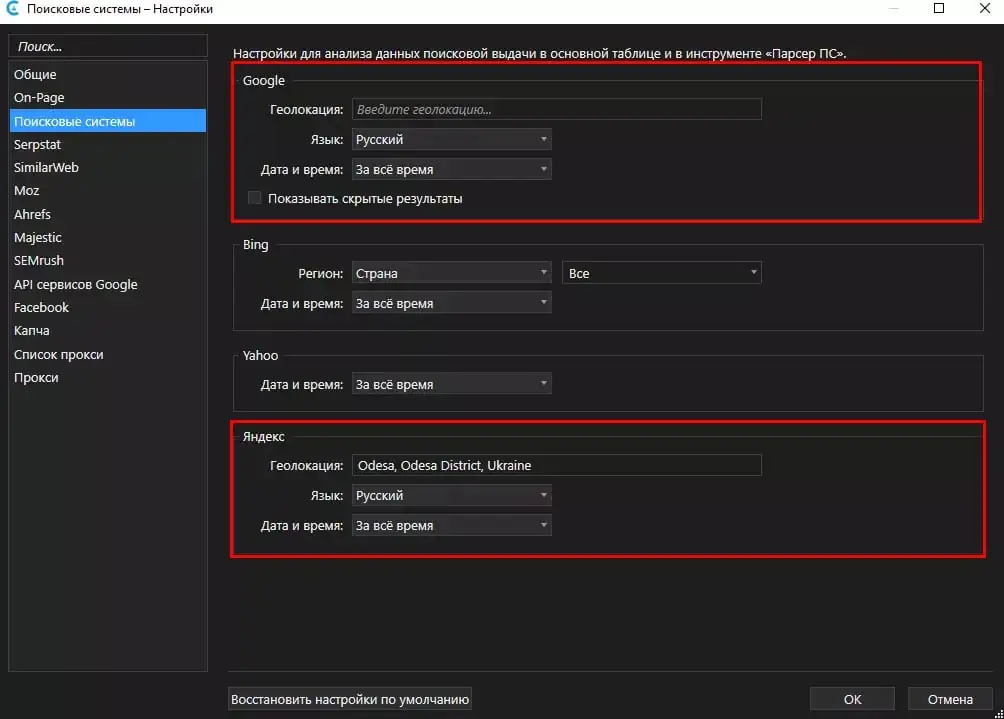
We get the results in this form:
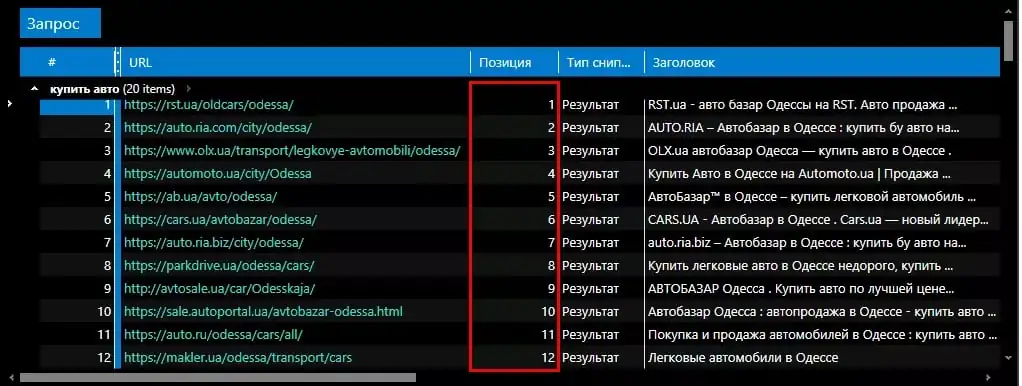
4. Majento
Tool allows you to conduct a detailed analysis of the content of the page for the relevance of the promoted search queries.
In the appropriate windows, enter the page address and the keyword that interests us.

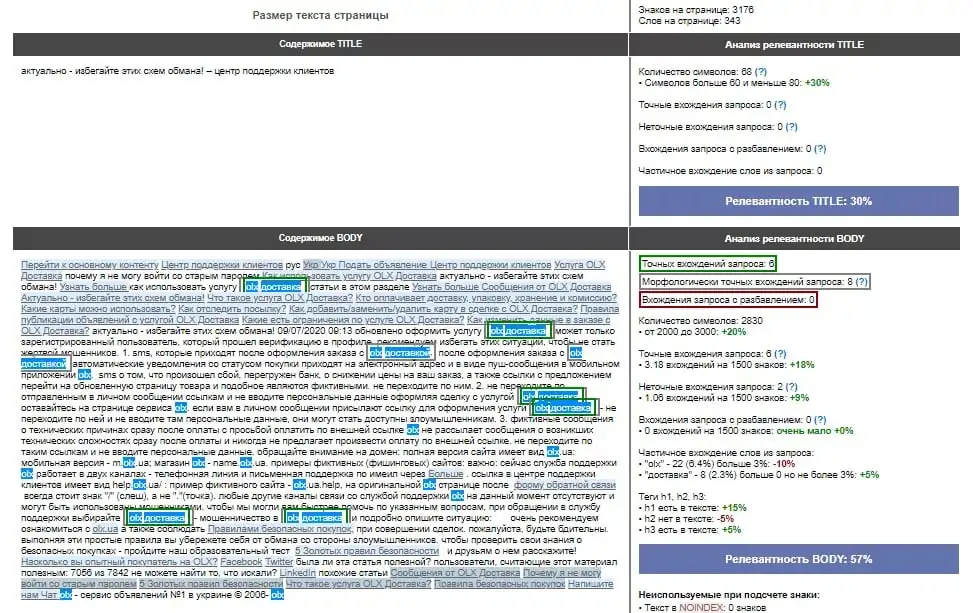
5. Istio
Free online service, which analyzes such parameters as text length, number of words, their relevance and density.
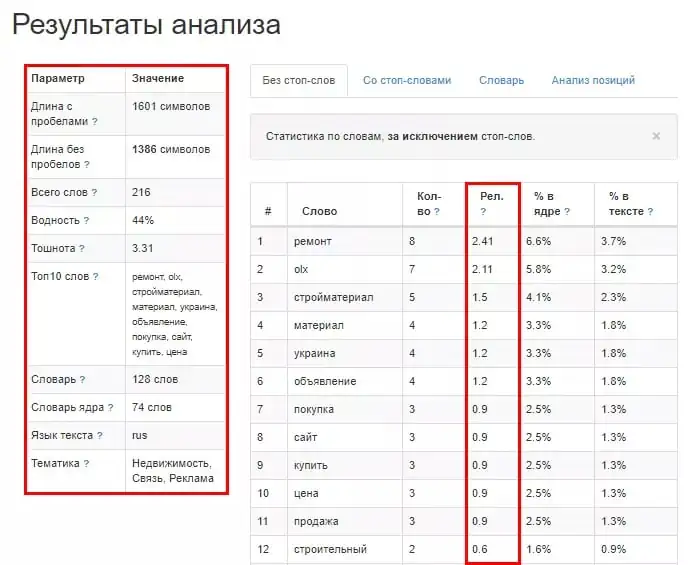
How to increase the relevance of a page / site
1. Collection of the semantic core and grouping by similar queries.
You need to understand how your site is searched by the user. At this stage, we collect keywords using services such as Serpstat, Google Ads Keyword Planner or Yandex Wordstat. It is important to collect the semantic core, and not to generate it: you will be surprised what kind of wording people drive into the search bar.
2. Optimization of meta tags and headings h1-h6.
Next, using the already assembled core, we compose meta tags and headings for the page. Place keywords closer to the beginning of the title and description.
3. Writing content for the page.
Based on keywords, create useful, unique content for the page. Remember that texts should be written for users, not machines, do not try to please search robots, otherwise you will have the opposite effect. After the text is written, check it for textual relevance (uniqueness, presence of keywords and LSI words).
4. Technical characteristics of the site.
Do not forget about the usability of the site and the speed of loading pages, with poor performance, your content runs the risk of being left unread.
5. Links
The presence of links from thematic sites with relevant anchors will help you take positions in the TOP.
6. Correct site structure
SEO specialists have a rule: "One keyword - one page."
Each page of the site is worth optimize under one keyword (+ a tail of requests). For each key request, we create a separate landing page, with the exception of synonyms.
For example, if a car sales page contains BMW and Audi cars, it will be difficult for the page to take the TOP in the search results for the user’s request “buy a BMW”.
Сonclusions
Relevant pages are pages that best meet the user's query. Search engines are interested in placing relevant pages as high as possible in the search results in order to be as useful to users as possible.
There are special ranking algorithms that take into account a hundred different factors from the presence of unique content to the speed of loading a site.
In order to get to the top of the search results for a key query, you need to properly optimize the page for this query:
- collect the semantic core;
- optimize page meta tags;
- prepare user-friendly content;
- correctly structure the site;
- work with the link mass and technical characteristics of the site.
A source: Netpeak

